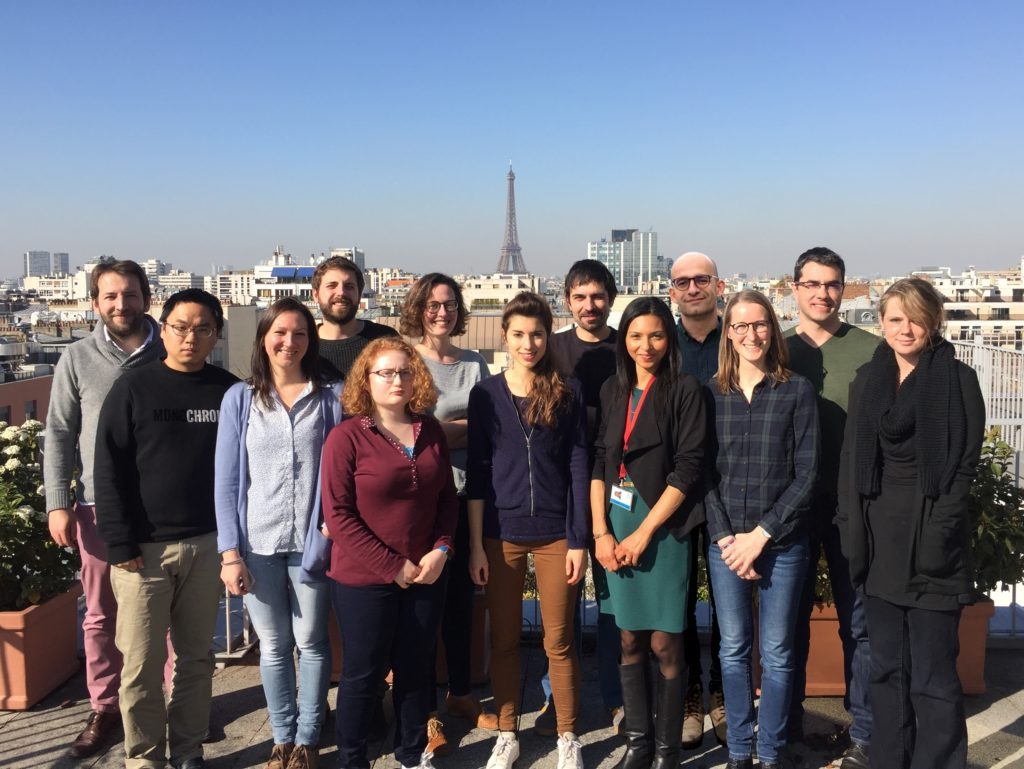Environment
The last few years have been marked by the emergence and spread of a number of infectious diseases across the globe. For example, outbreaks of Zika and chikungunya in the Americas, Ebola Virus Disease in West Africa and MERS coronavirus in the Middle East each resulted in substantial public health burden and received widespread international attention. These emergences have highlighted the many challenges faced by the public health community to anticipate, assess, manage and control these epidemics. In addition, established infectious diseases such as seasonal influenza, dengue or malaria keep on affecting hundreds of millions of persons each year.
In this context, the main research objective of the Mathematical Modelling of Infectious Diseases at Institut Pasteur is to develop state-of-the-art statistical and mathematical methods to analyze epidemic data, with the aim to increase our understanding of how pathogens spread in populations, assess the impact of interventions, support policy making and optimize control strategies. These analyses benefit from a strong network of collaborators in the field (in particular within the large International Network of Pasteur Institutes across the world) but also of strong connections with other Centres of Excellence in mathematical modelling. Our approach is highly multidisciplinary, looking at infectious diseases through multiple perspectives, multiple scales and multiple data streams. We work closely with public health agencies in both France and abroad to ensure our assessments can inform the public health response to epidemics.
For more details about our research projects, please visit our webpage at
https://research.pasteur.fr/en/team/mathematical-modelling-of-infectious-diseases/
Job description
We have a number of research projects for which we are seeking at least two postdocs. The projects will require the development of mathematical and statistical models to analyse infectious disease data with complex structures for a wide range of applications.
The portfolio of projects includes:
- The development of mathematical models to study arboviruses epidemics in Martinique and Guadeloupe, two French Island in the Caribbean. The models will be used to i) understand why, despite their spatial proximity, epidemic dynamics in the two islands are markedly different, ii) evaluate the impact of vector control in these islands and iii) assess the potential benefits of dengue vaccination in these islands to inform French policy makers.
- The analysis of serological data from 10,000+ population representative serum samples that have been collected from throughout Bangladesh and tested for historical exposure to different arboviruses (including chikungunya, dengue, Zika, Japanese encephalitis).
- The development of phylogenetic models that integrate information on population immunity, population flows and sequence data from 5000+ genomes to understand the spread and maintenance of dengue virus in Thailand.
- The analysis of 35 years of data documenting confirmed dengue cases across 45 islands that cover an area as large as Europe in French Polynesia. The models will aim to better characterize the persistence, spread and replacement of dengue serotypes in such an overall small population (276 000 inhabitants).
The postdocs will be expected to work with and develop state-of-the-art statistical and mathematical methodology that may involve Markov Chain Monte Carlo Sampling (MCMC), Sequential Monte Carlo sampling, Particle MCMC, Approximate Bayesian Computation or phylogenetic techniques. The exact projects the successful applicants will undertake will be determined in discussion with the team, taking into account the applicants’ interests and experience.
The postdocs will be supervised by Dr Simon Cauchemez and Dr Henrik Salje. Applicants will be given a one-year contract with possibility to extend it for longer periods, should both parties agree.
Interested candidates should contact email Cécile Limouzin (cecile.limouzin@pasteur.fr) with a CV, statement of interest and contact details of two referees that will be contacted directly after the interviews. The deadline for applications is 8 April 2019, with contracts starting as soon as possible.
Salary: Depending on education and experience.
Location: Mathematical Modelling of Infectious Diseases Unit, Institut Pasteur, 28 rue du Dr Roux, 75724 Paris Cedex 15, France.
Person specification:
- Research experience of working with mathematical and/or statistical models.
- A strong interest in infectious disease epidemiology.
- Ability to collate and analyse data, interpret and present results to a high standard using a range of specialised research techniques.
- Good knowledge of the R statistical programming language.
- Programming experience in C, C++ or Java is desirable
- Excellent verbal and written communication skills. The working language of the laboratory is English.
- Experience in communicating research findings to a non-specialist audience.
- Ability to work independently but also as part of a larger interdisciplinary research team.
- PhD in one of the following areas: infectious disease epidemiology, mathematics, statistics, physics, computer science, population biology or a similarly quantitative discipline.




